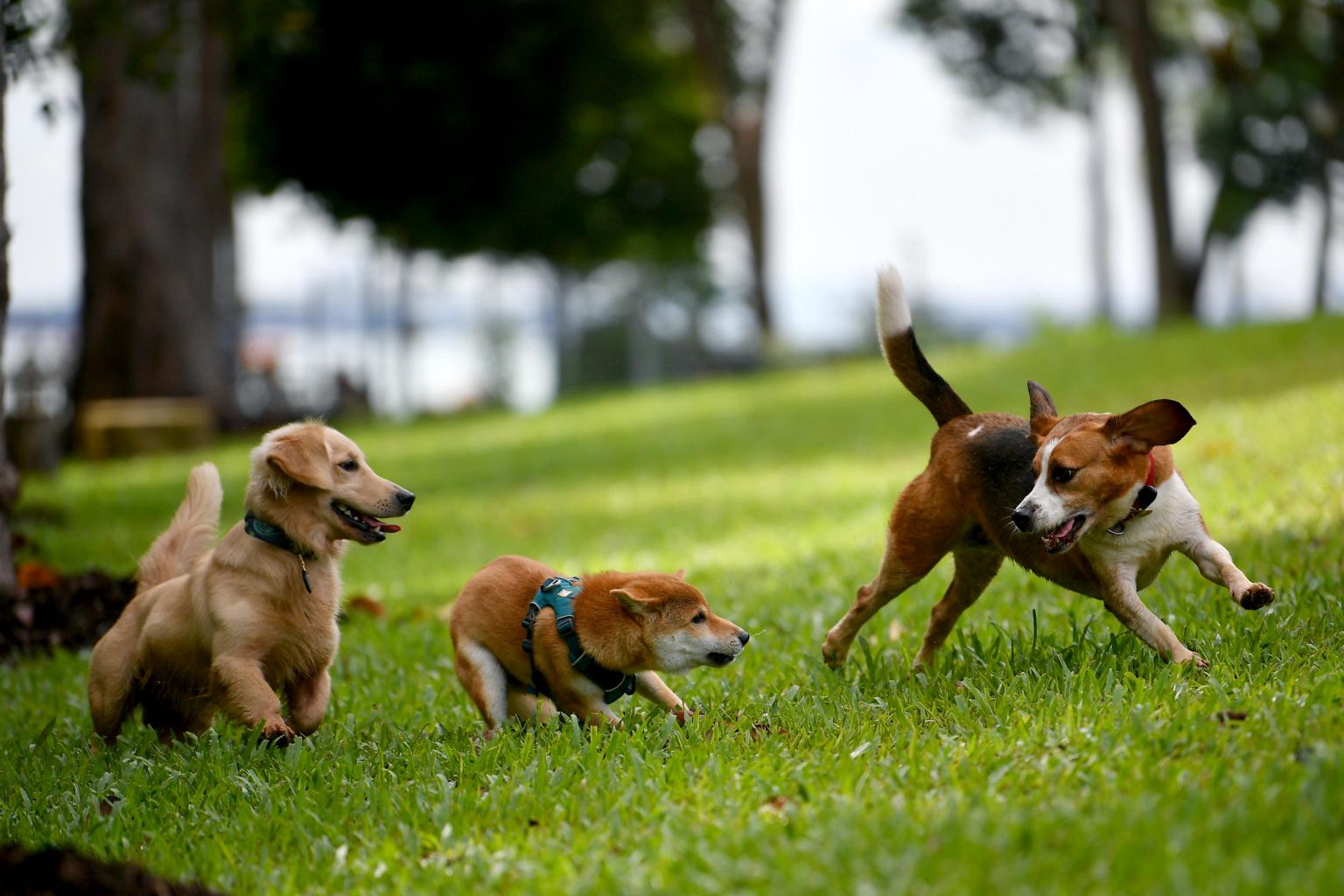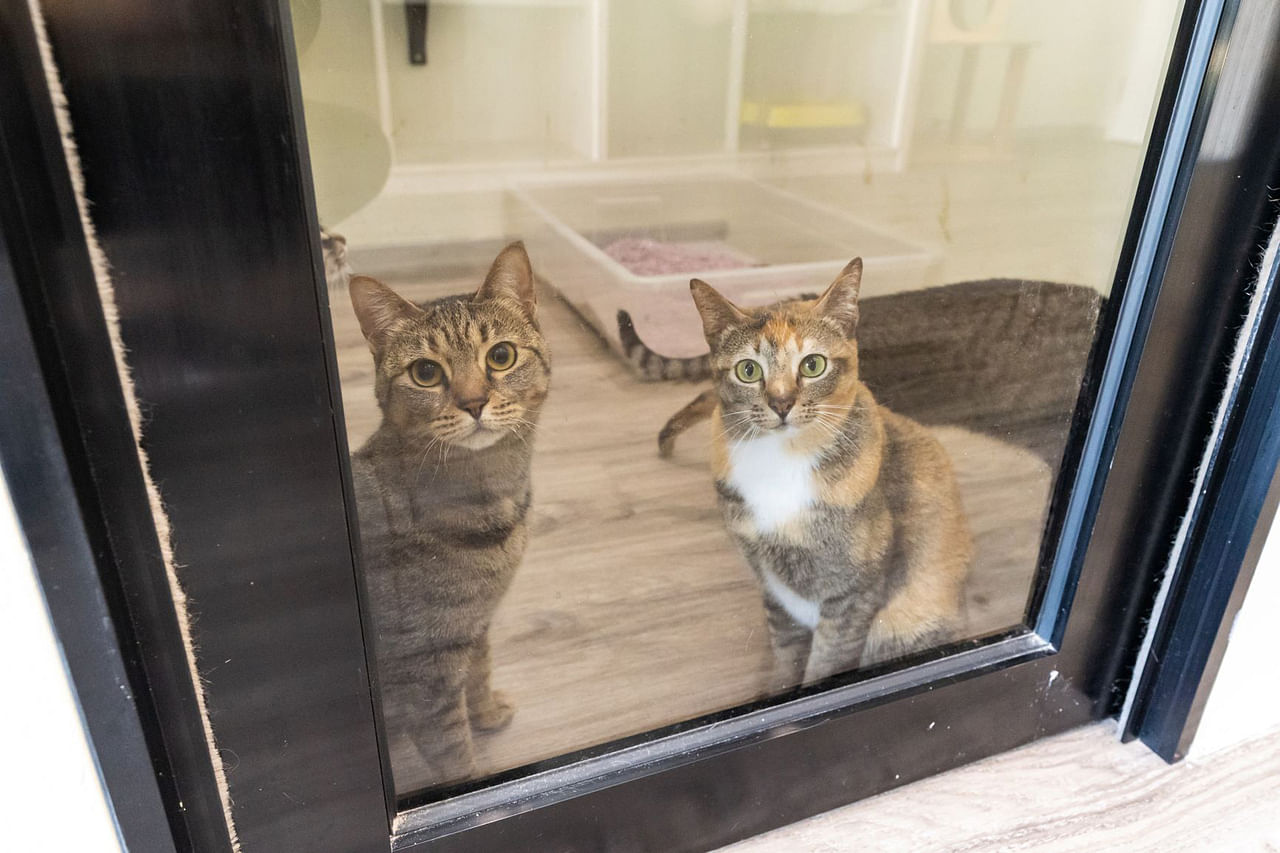Ban on inbreeding of dogs among new rules for pet breeders and boarders, up for public consultation
Sign up now: Get ST's newsletters delivered to your inbox

Until July 31, the public can give online feedback on licensing conditions for pet breeders and boarders.
ST PHOTO: LIM YAOHUI
Follow topic:
SINGAPORE - Bans on inbreeding and breeding dogs with harmful hereditary conditions are among new licensing rules that the Animal & Veterinary Service (AVS) has put up for public consultation from Thursday (July 1).
Until July 31, the public can give online feedback on licensing conditions for pet breeders and boarders, before they are finalised.
This follows a national pet sector review by AVS, which is under the National Parks Board. The review, which began in August 2019, identified the pet breeding and boarding industries as a key priority, with stakeholders suggesting that more needs to be done to raise licensing standards to protect animal health and welfare.
In January 2019, Platinium Dogs Club came under fire after a shetland sheepdog was reported to have died while in its care. Three months later, a maltese in the care of Board N' Play died after a swimming incident on Sentosa.
In a media briefing on Thursday, Dr Chua Tze Hoong, group director of industry and biosecurity management at AVS, said new licensing conditions will extend to about 50 pet boarders on commercial premises, which are unregulated. This will also cover animals such as cats and other small mammals.
Only five commercial boarders and 20 breeders on farmland in Sungei Tengah are licensed.
Under the more stringent rules unveiled on Thursday, commercial pet breeders and boarders will need to conduct daily health checks of animals in their care and record any signs of pain, suffering, injury, disease or abnormal behaviour in these animals. Tighter restrictions include record-keeping for breeders, mandating sufficient space for animals under pet boarders to avoid overcrowding and regular training for staff on animal management.
Minister of State for National Development Tan Kiat How said at the launch of the public consultation on Thursday: "With the rise of pet ownership in Singapore, I am sure members of the public will be keen to have a view about how their pets are bred or boarded."
Last year, 1,738 dogs were imported from the United Kingdom, Taiwan and elsewhere, up from 835 in 2019. The total number of active dog licences also rose to 72,000 last year, from 70,000 in 2019.
And last year, the number of pet shops grew to 300, from 267 in 2019.
The new rules will be enforced through unannounced checks for breeders and boarders, said Dr Chua. These will occur at least once a year.
Home boarders will also need approval from planning authorities and have a licence before operating, he added.
However, those who look after animals for friends and family do not need to be licensed under the proposed rules.
The focus is on commercial breeding and boarding activities based on the scale and nature of their operations, said Dr Chua, so it does not cover "a person who helps a friend to board a small number of animals on an ad hoc basis and does not advertise".

Cats boarding at Whiskey's, a commercial boarder that will now come under the licensing regime for pet boarders.
PHOTO: NATIONAL PARKS BOARD
The public can provide feedback about the new rules online at this link.
After public consultation ends, licensing conditions will be finalised by the fourth quarter of this year.
Before full implementation of the new licensing conditions, pet boarders and breeders will have six months to adjust.
When the rules come into force in the second quarter of next year, offenders will be penalised through warning letters, fines, prosecution and the suspension or revocation of their licences under the Animals and Birds Act.

